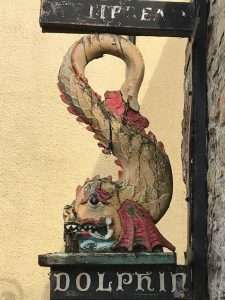Monty Don announced this evening that the BBC would broadcast the final edition of Gardeners’ World for the year next Friday.
It seems a strange decision, a strange perspective on the world, to decide that, ten weeks before the last day of the year, the year in the garden is complete, or, if not complete, not sufficiently interesting for them to continue the programme, if only for half an hour a week.
I remember once reading a letter in the Daily Telegraph in which the writer said that her father mowed the lawn in his garden on every day that it was possible to use his lawn mower, and would have cut the grass on Christmas Day if he were to be allowed to do so. Gardening for him was a three hundred and sixty five years a year activity, he would presumably have been a man who would have recoiled at the idea that there is a lack of interest after the end of October.
In the days when I worked in the midlands of Ireland, in the next couple of weeks there would have been a reminder that gardening is not an activity that stops in late October.
The signs of the spring to come would have appeared before the first week in November had passed. “Bareroot whitethorn,” “bareroot laurel,” “bareroot beech,” would declare successive signs outside Dunne’s nursery on the main road through Durrow in Co Laois.
Each year the signs were a declaration that winter was passing and that the time had already come to prepare for the better days when the garden would be filled with growth.
There could have been no better statement of the anticipation by gardeners of the warmer days that would come in the spring than their going to spend money on plants to be planted in November.
The BBC’s withdrawal of Gardeners’ World from its programme schedule from next week until March of next year suggests a suburban mindset. Rural dwellers know that growth continues almost all the year round, that if the ground temperature is above six degrees Celsius, then the grass will grow.
Given the massive emotional stresses created by the virus and the lockdown this year, it might have been hoped that the BBC would have demonstrated a greater appreciation of the importance of gardening for mental health. To have continued the weekly programme would have encouraged people to have remained in their gardens for as long as possible.
To announce an end for the year on 23rd October suggests a management without an understanding of the need for gardening.


